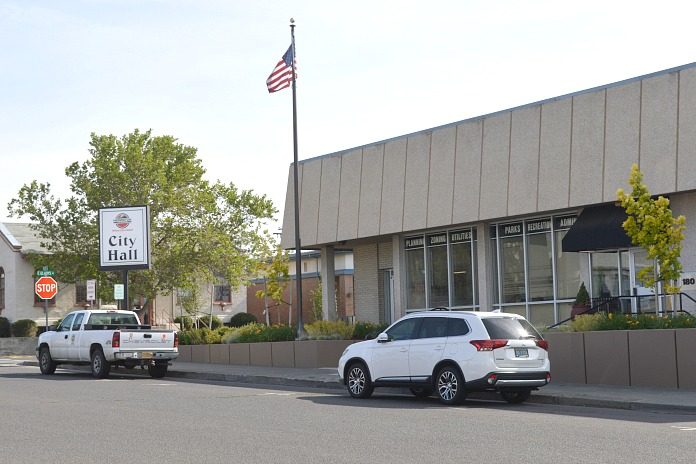
The Hermiston City Council will vote Monday to make major adjustments to water and sewer rate structures to more accurately charge customers for their use of the systems, and to tackle a growing backlog of deferred maintenance.
The rate changes, as recommended by the Council’s Public Infrastructure Committee (PIC), were reviewed by the full council at their Sept. 10 work session.
The main change to water rates will be to transition from a declining rate schedule, or one which charges less per unit with more usage, to an inclining rate schedule, or one which charges less for the initial usage and more for additional units of water. An inclining rate encourages larger water users to conserve, which is beneficial for local groundwater levels, but also ensures that larger users pay for the cost of service.
“Our current structure incentivizes customers to use more water by charging them less for the extra gallons, but unfortunately, there are real costs to the rest of the system for every additional gallon we produce,” said Hermiston Assistant City Manager Mark Morgan. “Producing and using more water means we have to develop more source and storage capacity, which is costly; this rate structure makes sure that the users who put the most demand on the system are paying their fair share.”
Sewer rates will also be streamlined in order to charge all users based on the amount that they discharge to the system. This usage-based sewer rate system is already used for commercial customers, and will now be implemented system-wide, with a standardized cost for each gallon discharged.
“It was clear that larger commercial sewer users have not been paying their proportionate share of the costs to operate and maintain the system,” Morgan said. “This new structure identifies exactly how much that cost is per gallon, and bills customers only for how much their usage costs the system.”
The path to identify exactly what the costs are to operate and maintain the water and sewer systems was a long one. The PIC began looking in to the issue in late 2016 when work began to develop a comprehensive capital improvement plan for both utilities. The group worked with staff and Anderson Perry Engineering throughout 2017 to refine the list of capital needs, but still ended with a substantial structural deficit. Anderson Perry has since taken those capital needs and developed the new rate structure in order to put the utilities on a sustainable financial path.
“I wish I could say that we can continue to kick the can down the road, but we’ve already been doing that,” Morgan said. “We’re at the end of the road, and now there’s a pile of cans here that need to be addressed before we can go any farther.”
The proposed rates are anticipated to generate approximately $2 million per year in additional revenue to cover the long list of deferred maintenance projects. Despite the increased cost to customers, Hermiston rate payers are still expected to enjoy relatively low rates, according to an apples-to-apples comparison with a customer using a monthly average of 20,000 gallons of water, and 5,000 gallons of sewer. The analysis of 31 comparable cities in Oregon, and Washington’s Columbia Basin, shows that while Hermiston’s current rates are the second lowest of all cities surveyed, the proposed changes would still rank Hermiston in the lower-third.
If approved, the new rates will take effect March 1, 2019. Customers interested in measuring the impact to their bills can easily review their current and historical water usage by creating an account online.










